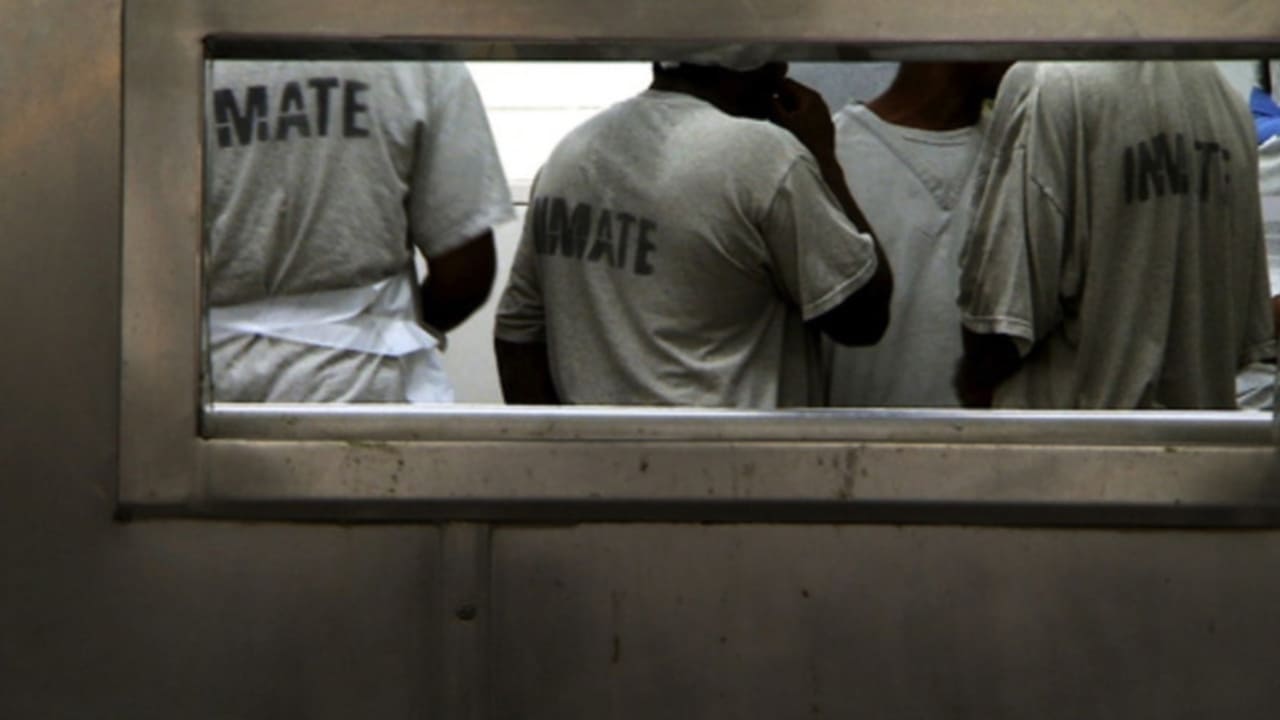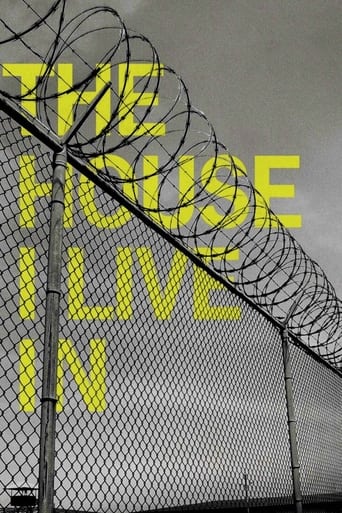

"The House I Live In" is a frustrating film to watch. This is because the first 75% or so of the film has a lot of great content and the film makes its point. Too bad they didn't STOP the film, as the last 25% actually will alienate many people who agree with the film's initial message.When the film begins, it presents a very convincing argument that the American government's so-called war on drugs is a complete failure. Important facts such as the nation leading the world in incarceration rates, the predominance of poor minorities serving time for drug possession and the violence associated with drugs are all very, very compelling arguments to say that what we are doing currently is not working. Then, instead of presenting a great argument for legalization or partial legalization, the film goes off on an argument about class warfare (sounding rather Marxist) and drawing parallels to the drug war with the holocaust (and when you start comparing ANYONE to the Nazis, then you've lost the legitimacy of the argument--which is often referred to as 'Godwin's Law'). The bottom line is that the film didn't know when to quit when it had presented a great argument. Its final overall argument is one that would alienate many libertarians and conservatives (folks who you might be able to convince that we should abandon this war on drugs and its disproportionate effect on the poor) and appeal more to a socialist and far-left crowd.While I DO agree that poor people get a bad shake and serve far, far more time than rich folks who can afford better lawyers and gain more sympathy from juries, resorting to the class warfare argument will appeal to many and alienate just about as many. And reserve the term 'Holocaust' for the Holocaust!!Overall ratings: For the first 75%--9; For the last 25%--2
... View MoreEugene Jarecki was a Caucasian boy who thought critically about the struggles of his family's black employee and later, as a grown man, why exactly his life turned out so differently than her sons'. Jarecki is the filmmaker of "The House I Live In", a poignant documentary that shines a big bright discerning light into the shadows of America's "War on Drugs." Within the opening chapters of the film, he voluntarily empties his pockets, disarms us, and identifies his proximity and interest in the topic.Professor after Intellect, Prison Guard after Police Officer, stories unfold and cold hard empirical statistics enforce the cyclical nature of class, race, poverty and crime. Heartbreaking accounts of systematic inequities are detailed from in the prison cell and outside. From behind the court bench and below it. Jarecki's storytelling is artful and slightly waxing poetical—in an effective manner I might add. He utilizes monologues in the film to humanize the numbers we see and discussions we hear with criminals we come to know over the course of the film; the same criminals we ultimately sympathize with by the end. Do not get me wrong, this is not a straight up "world against them" diatribe. David Simon, the man behind HBO's the Wire, has a number of well spoken and intelligent insights. He tells us, "what drugs haven't destroyed, the war against them has." This statement is referring to the futile attempt at eradicating drugs from the U.S. for the last 30 years. More black men are going through the legal system (prison, parole, and prosecution) than there were slaves in America 200 years ago. The film indicates a strongly biased machine that affects the entire lower class, but disproportionately the black population. Near the conclusion of the documentary Simon suggests the "War on Drugs" as a major factor contributing to the cyclical nature of social class. Although never uttered on screen, in many accounts it is implicit that the "War on Drugs" has also been a proponent of racism; the suppression and oppression of the minority populations in America. "The House I Live In" is a well groomed film. Very little fat and a lot of substance. Easily the most thorough screen analysis of America's current socioeconomic situation that I have discovered to date. This should be the "Super Size Me", the catalyst, for discussions around class in our country. Unfortunately, the same dominant system and mentality that works against many subjects in the film, does not appear to be concerned with fixing what is broken. Bronx drug dealer Shanequa Benitez tells us, "They view you as, 'damn you live over there?' But they don't bother to ask, 'damn was it your choice?'" With a jaded resolve Benitez points out the irony in the questions we typically ask regarding social issues. See for yourself if Jarecki is asking the right ones.
... View MoreThe House I Live In takes the complex issue of the failed war on drugs and breaks it down to a level that is both digestible and striking nonetheless. The film provides substantial historical evidence to make a powerful argument against the American war on drugs. The House I Live In exposes the many flaws of current anti-drug policies and strategies from a multitude of perspectives, drawing from historians and academics to front- of-the-line law enforcement and correctional officers alike. The film brilliantly ties these perspectives in a way that can effectively inspire viewers from all backgrounds to take a stand in confronting this largely unrecognized national issue.The film provides an impressively broad set of data and evidence that cohesively screams one message—the war on drugs is a failure to the American public. As the first film focused solely on the subject, The House I Live In is undoubtedly one of the decade's most important films.
... View MoreIn 40 years, of America's 'war on drugs', more than 45 million arrests have been made. The approach has made the United States the world's largest jailer with almost 2.3 million individuals incarcerated. This means that the USA has the highest documented incarceration rate in the world with about 1% of all adults in jail. African Americans comprise less than 14% of the US population but almost 40% of those in prison. Hispanic Americans comprise just over 16% of the US population but around 20% of those in prison. African American males are jailed at about six times the rate of white males and three times the rate of Hispanic males.Against this background, Eugene Jarecki has written, produced and directed this striking documentary examining the impact of the war on drugs in America. Starting with the black woman who was his childhood nanny, he interviews an eclectic cast of characters with different experiences of the problem: the drug dealer, the policeman, the judge, the prison guard, the life prisoner with no chance of parole, and – most eloquent of all – the creator of the television series "The Wire".Until recently, the drug problem has been seen by many Americans as a black and brown issue and the strong emphasis on enforcement measures, with a growing use of mandatory minimum sentences, has led to a swollen ethnic prison population that, for many whites, has swept the problem off the streets and out of sight. But the availability of different drugs and the loss of manufacturing jobs has led to more white, working class men being caught up in this destruction of both personalities and communities. So, at its core, this is not an issue of ethnicity but one of poverty.The film argues that the policies of the last four decades have failed and need to be fundamentally rethought. Drug use should be considered as less an issue of criminal justice and more a matter of public health. Many drug users are not evil or selfish but victims of poverty and deprivation who are trying to find some income where there is little employment and some solace when life is so miserable.This is a stunning documentary that raises profound issues – and not just for Americans. It will not be an easy film to see at the cinema, so catch it on television (as I did) or buy or rent it.
... View More